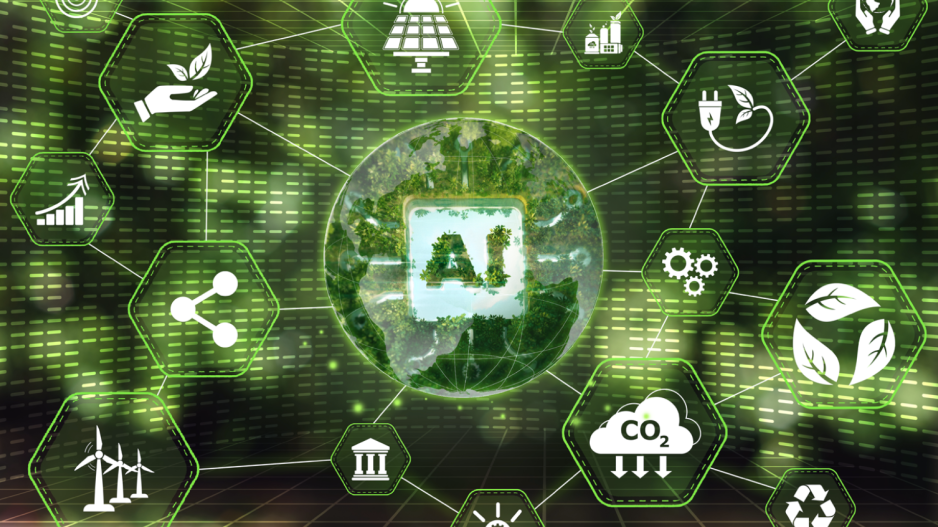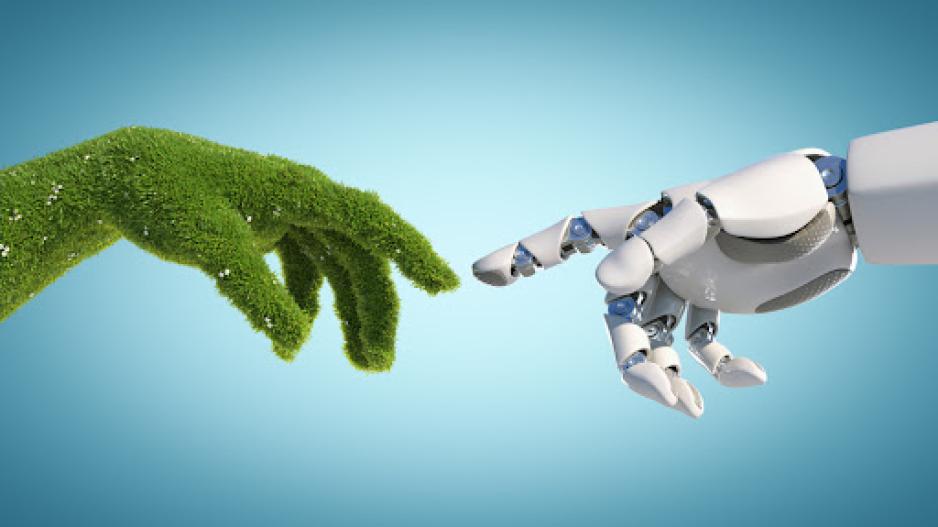Artificial Intelligence Evolving to a Key Enabler for Sustainability
A sustainable future powered by AI is a necessity.
Artificial Intelligence (AI) is the technology that enables computers and machines to simulate human learning, comprehension, problem solving, decision making, creativity and autonomy. Therefore AI, new technology set, can and is uniquely suited to advancing the Sustainable Development Goals (SDGs).
SDGs agenda in recent years has been evolving alongside a European “Trustworthy AI” policy agenda with a growing momentum in geo-politics. Thus, the European Green Deal launched by the European Union in 2019 recognised the transformative power of AI to contribute to the accomplishment of the green transition. AI can help this transition through, for example, a more efficient use of scarce resources, prediction and management of environmental impacts, optimization of production processes, and policy foresight ideas. At the same time, the Green Deal stresses that “sustainability” must be a core point of departure for the development of not only AI technologies, but a digitalized society in general.
AI offers a powerful toolkit for accelerating progress towards the SDGs. It has been noticed at the World Economic Forum (2023) and acknowledged that AI is an accelerator for sustainability — but it is not a silver bullet. Nonetheless, it is appreciated on metrics research based evidence that by addressing challenges in energy, health, agriculture, and urban planning, AI capabilities provide the necessary tools to governments, businesses, and organizations to design evidence-based strategies, optimize resources, and scale solutions across sectors. AI can drive scalable, innovative solutions that deliver tangible environmental, economic, and social benefits.
While the potential of AI to drive sustainable development is vast, it should not be missed that it comes with its own challenges especially of AI ability to analyze vast amounts of data, identify complex patterns, and generate actionable insights.
Ensuring that AI applications are ethical and inclusive is critical. It has to be appreciated that any AI solutions must prioritize fairness and transparency, particularly when addressing global issues like poverty, hunger, and climate justice, where inequalities are often pronounced.

The deployment of AI for sustainable development cannot happen in silos. Governments, businesses, research institutions, and civil society must collaborate to align AI development with the SDGs. Public-private partnerships can accelerate innovation, while policies and regulations ensure that AI is developed responsibly.
EU is already leading this effort with its proposed AI Act, which emphasises trust, safety, and transparency. By setting ethical and legal frameworks, the EU seeks to harness AI’s potential while mitigating risks such as bias, energy overconsumption, and misuse of the technology.
At the same time, international cooperation is needed to ensure that AI technologies are accessible to all, particularly in developing countries where the SDGs are most critical. Investments in AI education, infrastructure, and capacity-building will ensure that no region is left behind in the AI revolution.
Take, for instance, the fight against climate change (SDG 13). AI-powered tools can process massive datasets to improve climate modeling and predict environmental changes with higher accuracy. Such insights can be proven crucial for policymakers and scientists’ strategies and actions to combat rising sea levels, deforestation, and extreme weather events.
In the healthcare sector (SDG 3), AI is already revolutionizing the way health professionals approach disease detection and treatment. By accurately identifying early warning signs of infectious diseases and by personalizing medical care, AI solutions bridge critical gaps in global health systems. In underserved regions, AI already facilitates the delivery of vital medical services, improving health outcomes and life expectancy.
When it comes to sustainable cities and communities (SDG 11), AI is driving innovation in urban planning. By leveraging real-time data on traffic, pollution, and energy consumption, AI can help cities optimize infrastructure, reduce carbon emissions, and enhance the quality of urban life. In agriculture (SDG 2), AI models analyze weather patterns and soil conditions. Providing farmers with information on the most efficient use of water, fertilizers, and pesticides, ensures food security and protects the environment.
One significant concern is its environmental footprint. AI systems and the data centers that power them require substantial amounts of energy. Training a single AI model, for instance, can consume as much energy as an entire household does in a year.

The global sustainable development political agenda is based on the political intention and principles created at the Human Environment Conference taking place in Stockholm, Sweden, in 1972. This was the first global conference to recognise our human impact on the “environment” and the urgency of global political attention and coordination. As follows, the idea of “environmentally sound technologies” was developed with an emphasis on the reduction of environmental pollution and sustainable resource use “by design”.
Governments, businesses, and society must act together to ensure AI serves as a force for good, enabling a future where technology and sustainability coexist harmoniously. AI raises a critical question: Can the sustainability benefits from AI outweigh? The answer lies in how AI’s deployment is optimized. AI, for example, advances in energy-efficient algorithms, greener data centers, and the integration of AI systems with the renewable energy sources are essential steps toward ensuring the net-positive impact of AI on sustainability.
AI vision requires careful implementation and its technological features must be developed responsibly. AI solutions supporting environmental footprint must be considered and its benefits must be shared equitably. The clock is ticking towards 2030, and the challenges before us are immense. But with AI as a partner, achieving a sustainable, equitable, and prosperous future is within our reach. A sustainable future powered by AI is a necessity.






